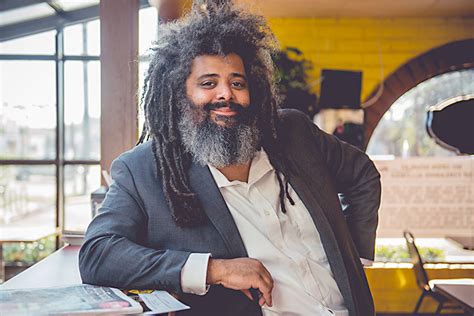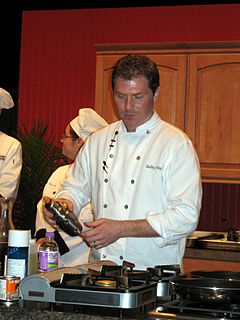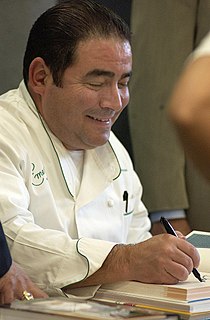A Quote by Chris Cubas
Put me on the Food Network - I'll be the funniest guy talking about food. I don't care.
Quote Topics
Related Quotes
Isn't food important? Why not "universal food coverage"? If politicians and employers had guaranteed us "free" food 50 years ago, today Democrats would be wailing about the "food crisis" in America, and you'd be on the phone with your food care provider arguing about whether or not a Reuben sandwich with fries was covered under your plan.
Those of us who think about what we eat, how it's grown, those of us who care about the environmental impact of food - we've been educated by fabulous books, like Fast Food Nation and documentaries like Food Inc. But despite these and other great projects that shine a critical light on the topic, every year the food industry spends literally tens of millions of dollars to shape the public conversation about our food system.
If there was ever a food that had politics behind it, it is soul food. Soul food became a symbol of the black power movement in the late 1960s. Chef Marcus Samuelsson, with his soul food restaurant Red Rooster in Harlem, is very clear about what soul food represents. It is a food of memory, a food of labor.

































